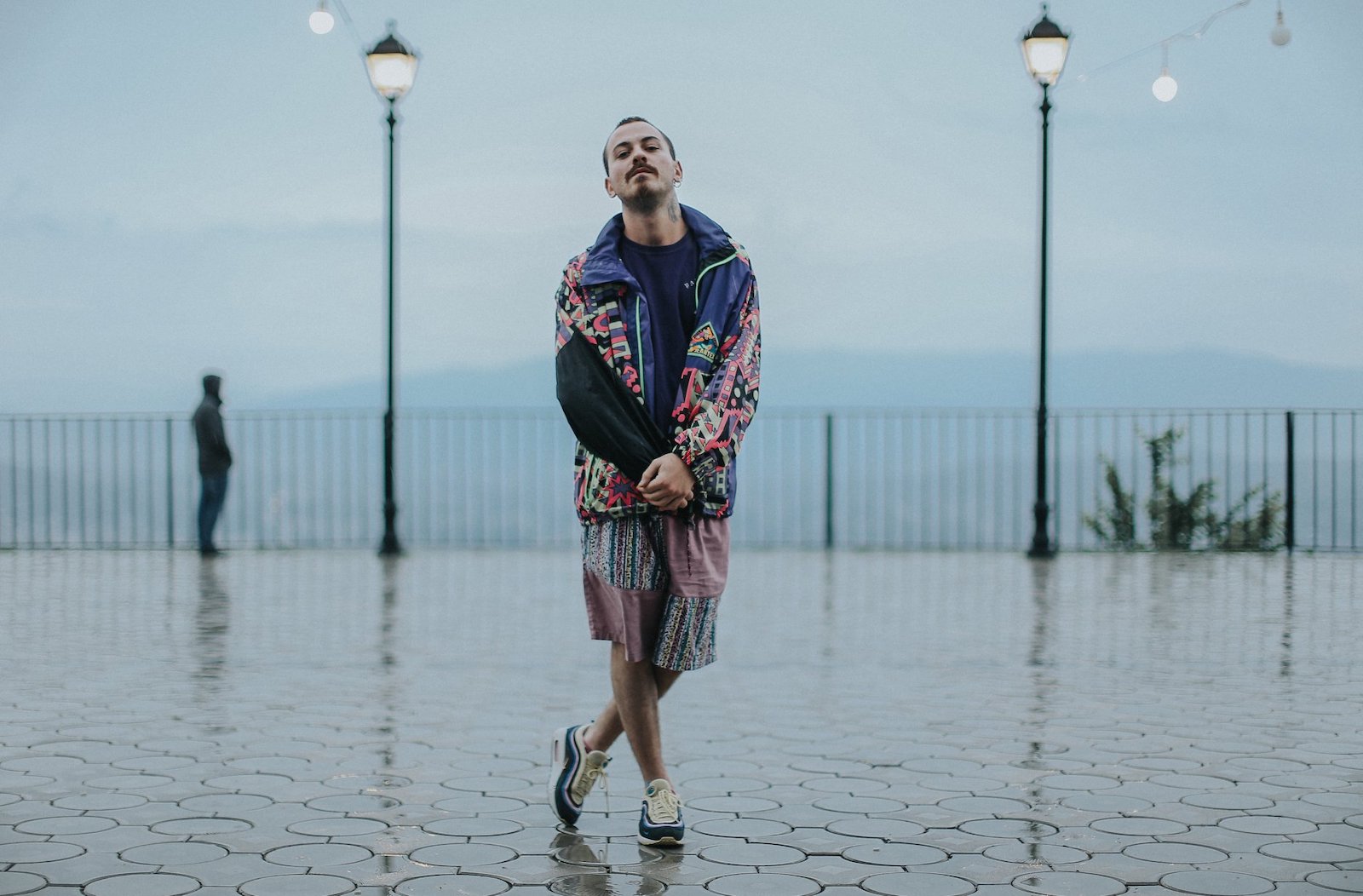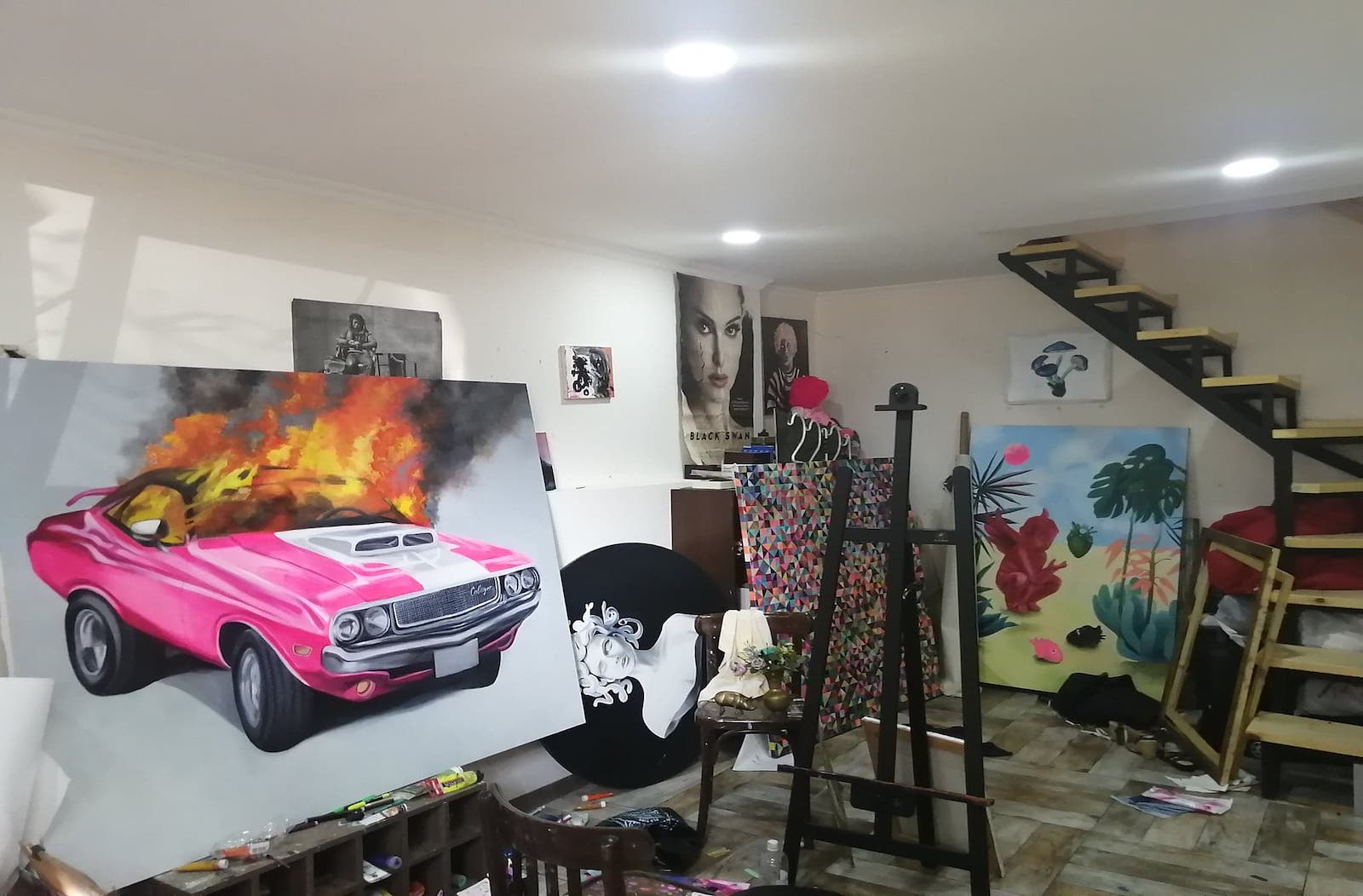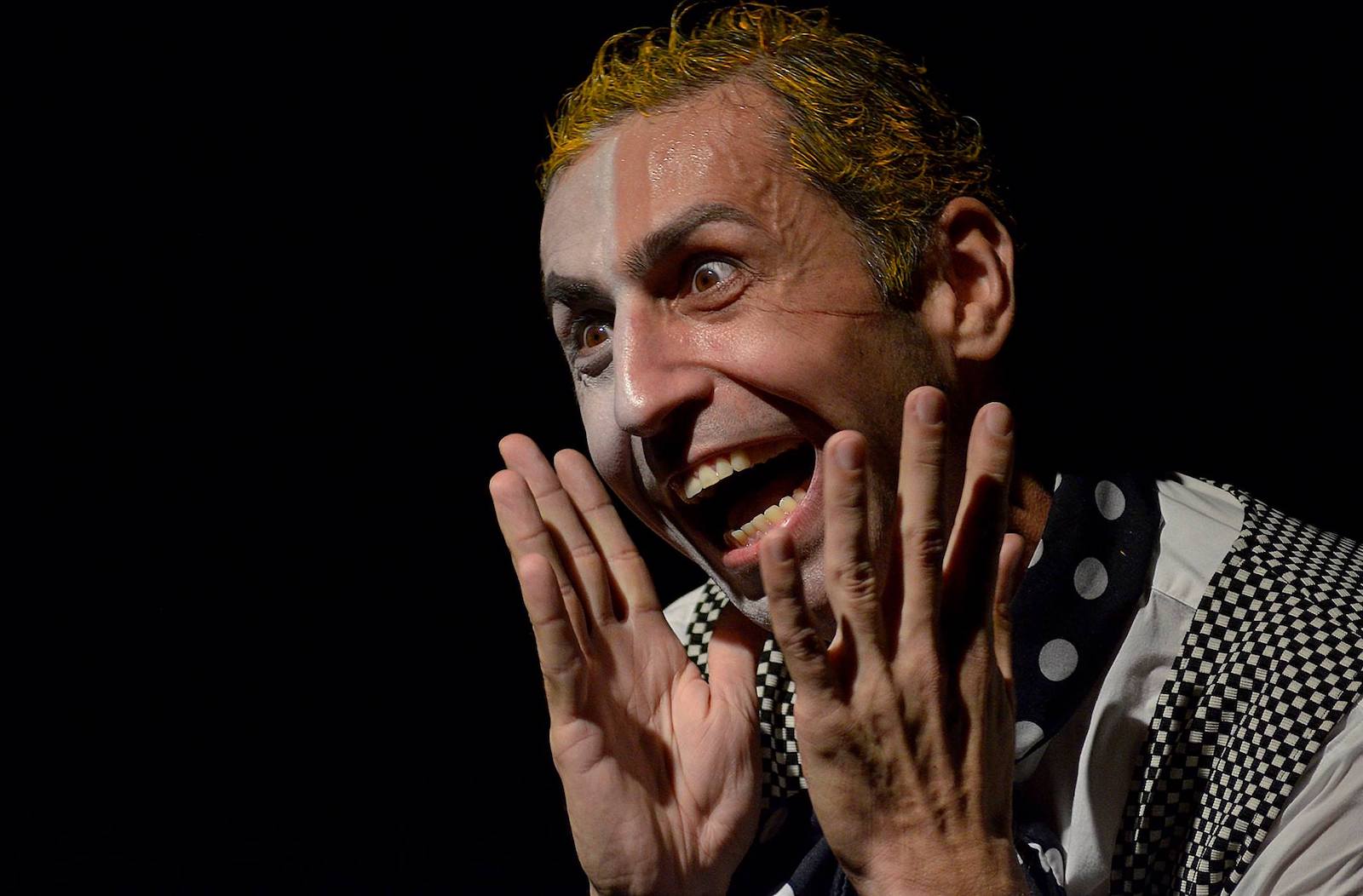
Interview With Luka Metreveli (L8)
By Ana Mikatadze
I first met Luka at the 4GB music festival. Back then I didn’t know his name or the fact that he was a DJ. We both practically lived there and would warmly greet each other. The same would happen at the Open Air festival and at Mzesumzira fest too – the only difference here was that I found him standing on the stage. You should’ve seen my face when I realized that this boy with colorful handmade T-shirts was, in fact, the Luka Metreveli I had heard so much about. I decided to have my first interview with him, and shortly after, we met up. Apart from being a successful DJ, Luka is a very interesting talker, and he even makes amazing salads.
Turn on the video and listen to his work from the Mzesumzira festival while you read through our interview:
What purpose does your music serve?
Luka: Generally, the life of an artist brings out all of one’s hidden opinions and desires. Art helps you find answers when you’re looking for them in yourself and not in the outside world, and this supports your personal development and growth. I think my creative work, first of all, is a way for me to find out more about my inner self.
Being a DJ is to feel with your soul – it’s a very pleasant and healing experience because you transform people’s attention into music and return it back to them. At this moment you feel the rotation; it’s very clear and straightforward. Because the music is repetitive and rhythmic, sound design is very important, and you can play with mathematical precision as well. This is different from live performances where the set is written throughout the night, and it isn’t pre-calibrated.
I play classic live DJ sets with my voice, either clearly or with an effect. I read poetry and different types of pitches, and I try to share social messages and information. My voice helps me a lot with this. I plan on adding live instrumentals so that I’ll be able to create everything myself.
How famous are you in Georgia and have you played outside the country?
Luka: I have an active career in Tbilisi. My stage name is L8, and you can find information about me on different websites like Transcendence Booking and Resident Advisor. I don’t limit myself, and I’m always open to experiments, but I never play only for money if there’s no fatal necessity. Unfortunately, people in Georgia lack professionalism in this sphere, and I often find myself in uncomfortable situations, but what can you do about it? I pay a lot of attention to the place, atmosphere, and crowd. That’s how I pick the place I’d like to play at.
As for outside of Georgia, I haven’t been invited anywhere commercially, but I’m expecting some offers from Germany and Israel by the end of the summer. Instead, I play quite often at parties that my friends organize in different countries. One that stands out is this Georgian millionaire who owns a castle in Slovakia, and somehow, my friends gained access to it and hosted a party. It was an amazing feeling to play in a castle, and it is a great memory to have.
You were singing back when you were a kid. Why did you move from that to being a DJ?
Luka: This culture impressed me from the very beginning. I was 15 when I first went to a club, and I was listening to electronic music before that as well. At first, I was simply collecting tracks for about three years, which then turned into a library. I then started mixing for myself, and soon after I started playing professionally too.
What distracts you the most when you play?
Luka: Almost nothing, at that moment, I am just there and playing. I guess the only thing that distracts me is when somebody’s trying to distract me. I’m not against communicating with others while I’m performing, but it matters in what form they try to communicate.
Do you manage to have fun as well while you’re playing?
Luka: For me performing is fun. Music was always fun for me, even when I was little, and it’s like that now, too.
Are you doing something other than playing?
Luka: Sometimes I fool around with poetry, but I’d like to stick to what I know best. Usually, I spend my day buying different tracks, listening to them, and collecting music. I also make my own t-shirts – I sew colorful stones onto them.
Do your T-shirt designs have any sort of meaning?
Luka: Yes, they represent different Chakras of the heart, which take different shapes in different situations. These stones directly mimic the forms around us, and even though they’re plastic, they still have the same effect for me.
What was that main motivation that brought you here?
Luka: My motivation constantly changes, but it was part of a bigger picture that had always stayed the same. In the end, the biggest motivation is yourself.
What would you change in Tbilisi?
Luka: This is a very big topic for one question. There is a lot to change in Tbilisi, and everyone will agree on that, but I’ll talk about my area. I would be very glad if musical intellect and demand for quality would rise. I wish that people would try to deepen their musical knowledge. That would fix everything I don’t like. People don’t know what they want, and if they do, they don’t even try to search for places where they could listen to such music. In Tbilisi, everyone goes where it’s “cool”, but if they would listen to what they really liked, there wouldn’t be so many stupid remarks and negative emotions. Opening new clubs would also be good. I hope I’ll open one soon if I get funded, but not a club, more like a pre- and after-party place. For now, it’s just an idea (almost fully formed), and if it works out, you’ll need to write about that too.
I will, it sounds really interesting, especially when we lack such places. I can’t help but ask about the protest and all. Why do we suddenly care so much about politics?
Luka: I’m more interested in why we didn’t care before. This process has been going on for a very long and when it reached its height, only then did people start to get involved. The internet played its role too. I really don’t like the fact that the world’s worst country is slowly eating us. I have a lot of Russian friends, and this is not about them. There are people who stand above their nationality.
I hope these protests will have a result. I guess they already have, but we must reach the main goal, and if not, I see a positive side in that too – it will be a confirmation of all the doubts that people have for the government.
There has always been a problem with the younger generation not being interested in politics. Why are they so active now?
Luka: They probably grew up. We saw the consequences of our laziness and disregard, which led us to realize a lot. This indicates the strength of the community. Today, they are doing ultra-interesting projects, and they even allocate their high energy to fixing what should’ve already been okay. This is their sacrifice, and hopefully, we’ll see the results.
Do you go to the protests and if so, why?
Luka: Yes, when I have enough time and energy. I go for everything altogether. I simply don’t understand why our small request for this incompetent, cruel, and hated minister isn’t satisfied. He may even be getting worse – that doesn’t matter; what matters is for him to feel the responsibility of his own actions. I think that the whole government should’ve apologized with their heads down because of what’s happening right now, but nothing. I always try to be kind, but I think when somebody treats you like that, you have to spark fear in them. When an animal is being attacked, it always responds to block the unwanted impulses.
What trait wouldn’t you want to get from Europe?
Luka: Europe is big, and it has a lot of negative and positive sides, but I guess in Georgia, the best thing is the quality of relationships. Here, you can have many good friends quite naturally, and you don’t see that high quality in Europe. I’ll add here that my main goal is to be among open, educated, and good people.
If you could, what would you import or export from Georgia?
Luka: Having maracuya (passion fruit) would be great. We have some, but they’re too expensive and not the best. It’s a citrus-like fruit which I’m very fond of, and I want to be able to buy it for an adequate price in any shop. I would export Tkemali. I think it should be available everywhere, just like Greek olives.
If you were the interviewer, what would you ask yourself?
Luka: I would ask myself, “What do you want?” When you know that, the goal is easier to achieve. The main thing is to know the answer to that question, and the road to it gets built up by itself. You should listen closely to yourself to figure out what you really want, and then everything becomes simpler.


